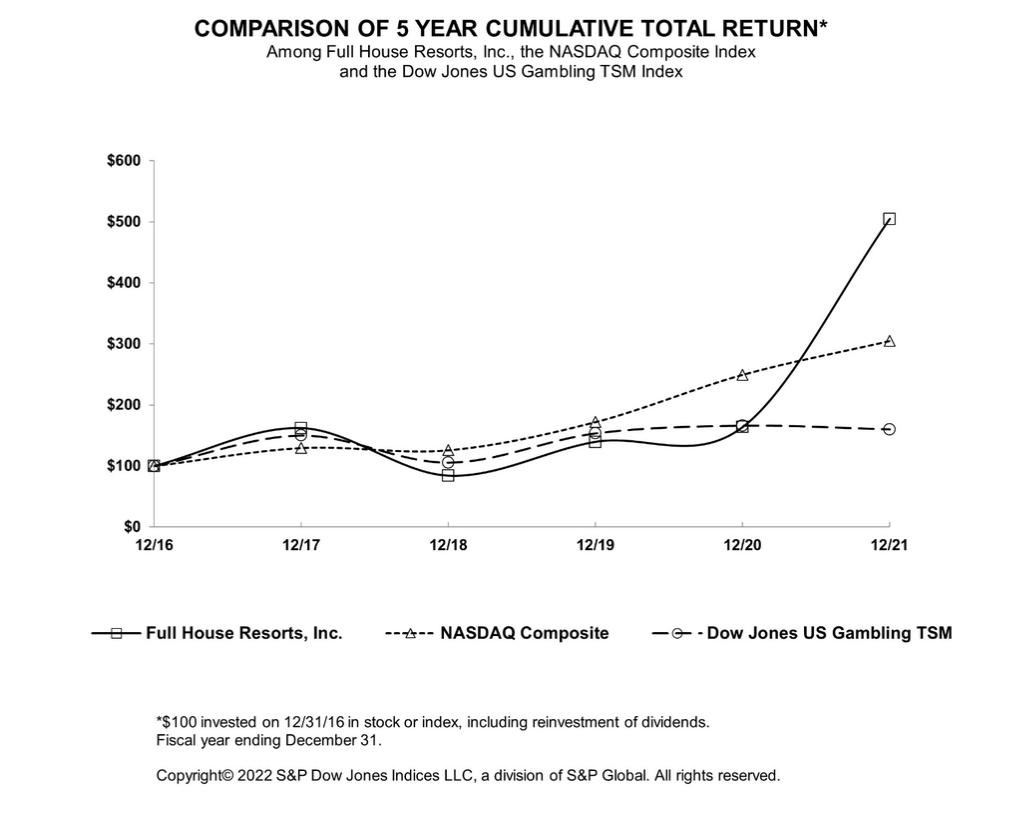Stockman’s Casino (Fallon, Nevada)
Stockman’s is located in Churchill County, Nevada, approximately one hour from Reno, Nevada. Stockman’s primarily serves the local market of Fallon and surrounding areas, including the nearby Naval Air Station, which is the Navy’s premier air training facility, informally referred to as the “Top Gun” school. In addition to its casino, Stockman’s offers a bar, fine-dining restaurant and coffee shop. In 2018, we completed numerous external improvements to the property, including a new porte cochère. In late 2019, we completed a significant renovation and rebranding of the Stockman’s steakhouse.
Grand Lodge Casino (Incline Village, Nevada)
We operate Grand Lodge at the Hyatt Lake Tahoe under a lease with Incline Hotel, LLC. Grand Lodge is located within the Hyatt Lake Tahoe in Incline Village, Nevada on the north shore of Lake Tahoe and includes approximately 20,990 square feet of leased space. The Hyatt Lake Tahoe is one of three AAA Four Diamond hotels in the Lake Tahoe area. Our casino’s customers consist of both locals and tourists visiting the Lake Tahoe area.
Our lease with Incline Hotel, LLC is set to expire in August 2023, but we own the personal property, including slot machines. The lease is secured by our interests under such lease, consisting of certain collateral (as defined and described in a security agreement), and is subordinate to the Notes. The landlord currently has an option to purchase our leasehold interest and operating assets of the Grand Lodge Casino at a defined price based partially on earnings.
American Place, Including The Temporary (Waukegan, Illinois)
In December 2021, we were chosen by the Illinois Gaming Board (“IGB”) to develop American Place, a new gaming and entertainment destination located in Waukegan, Illinois, a northern suburb of Chicago, subject to final regulatory approvals. Waukegan has a population of approximately 89,000 and is the county seat of Lake County, which has a population of approximately 714,000. According to the U.S. Census Bureau, Lake County has a median household income of approximately $89,000 and is also the third most populous county in the state.
The permanent American Place facility is slated to include a world-class casino with a state-of-the-art sports book; a premium boutique hotel comprised of 20 luxurious villas, each ranging from 1,500 to 2,500 square feet with full butler service; a 1,500-seat live entertainment venue; a gourmet restaurant that will rival the finest restaurants in Chicago; additional eateries and bars; and other amenities that will attract gaming and non-gaming patrons from throughout Chicagoland and beyond.
While the larger, more lavish, permanent facility is under construction, we will operate a temporary casino facility, aptly named The Temporary by American Place. The Temporary is slated to include approximately 1,000 slot machines, 50 table games, a fine-dining restaurant, two additional restaurants, and a center bar. We intend to open The Temporary in Summer 2022, pending customary regulatory approvals.
In preparation for the opening of The Temporary, we recently agreed to purchase a “Sprung structure,” which encloses an area of approximately 1.5 football fields and will house most of the temporary casino. The Sprung structure is expected to arrive on-site in April 2022. Additionally, we recently entered into an agreement to purchase approximately 10 acres of land adjoining the approximately 30-acre casino site to be leased from the city, providing space for additional parking and access to the casino site from a major road.
On February 7, 2022, we closed a private offering of $100 million aggregate principal amount of our 8.25% Senior Secured Notes due 2028 (the “Additional Notes”). The Additional Notes were sold at a price of 102.0% of the principal amount and were issued pursuant to an indenture under which we previously issued for the 2028 Notes on February 12, 2021 (collectively, the “Notes”). Also on February 7, 2022, we amended our senior secured revolving credit facility agreement to, among other things, increase our borrowing capacity from $15 million to $40 million (the “Credit Facility”), all of which remains undrawn as of this report date (see Note 6 to the consolidated financial statements set forth in Part II, Item 8. “Financial Statements and Supplementary Data”). The interest rate for borrowings under the Credit Facility, based on today’s rates, would be less than 4%.
